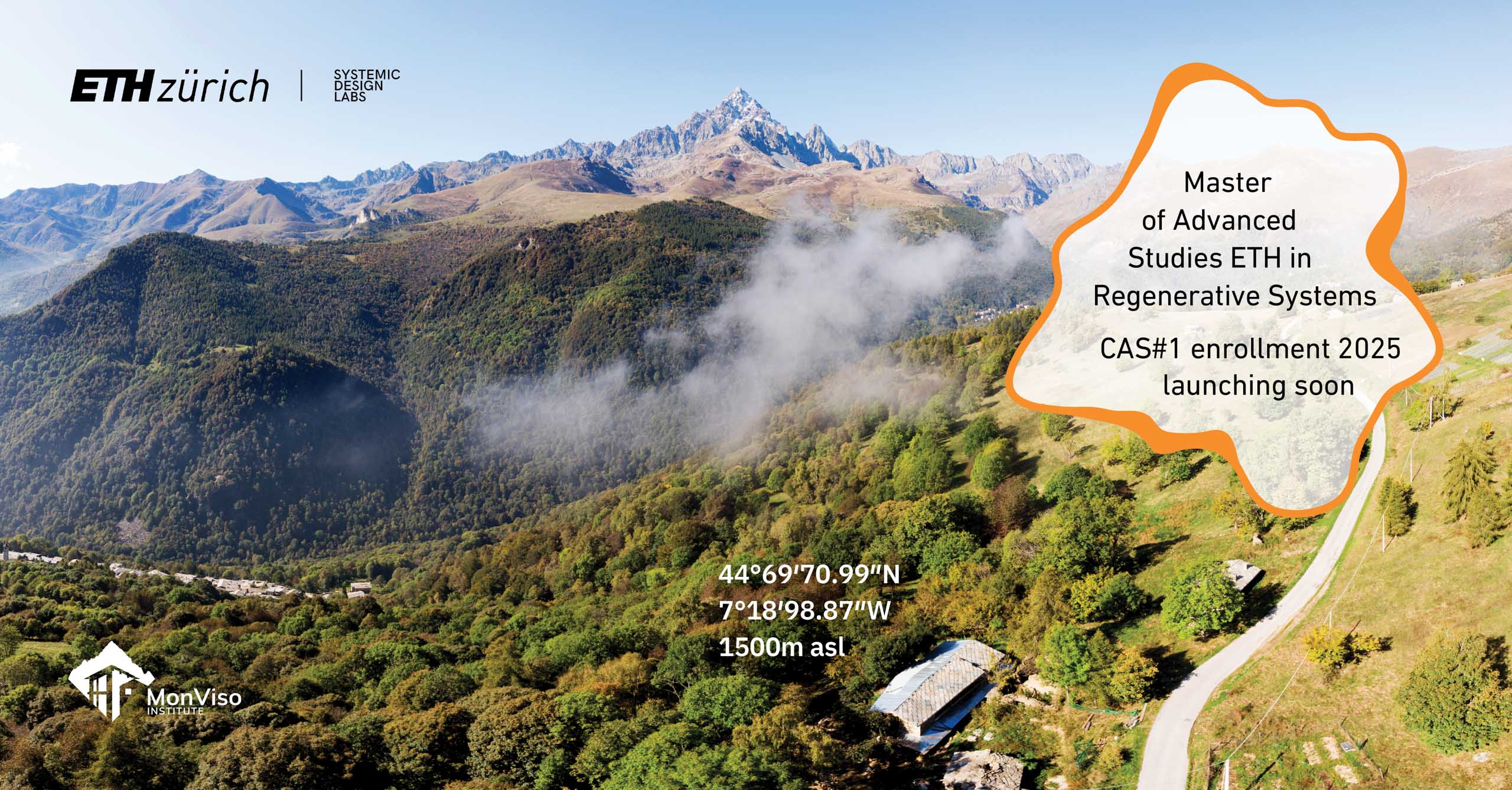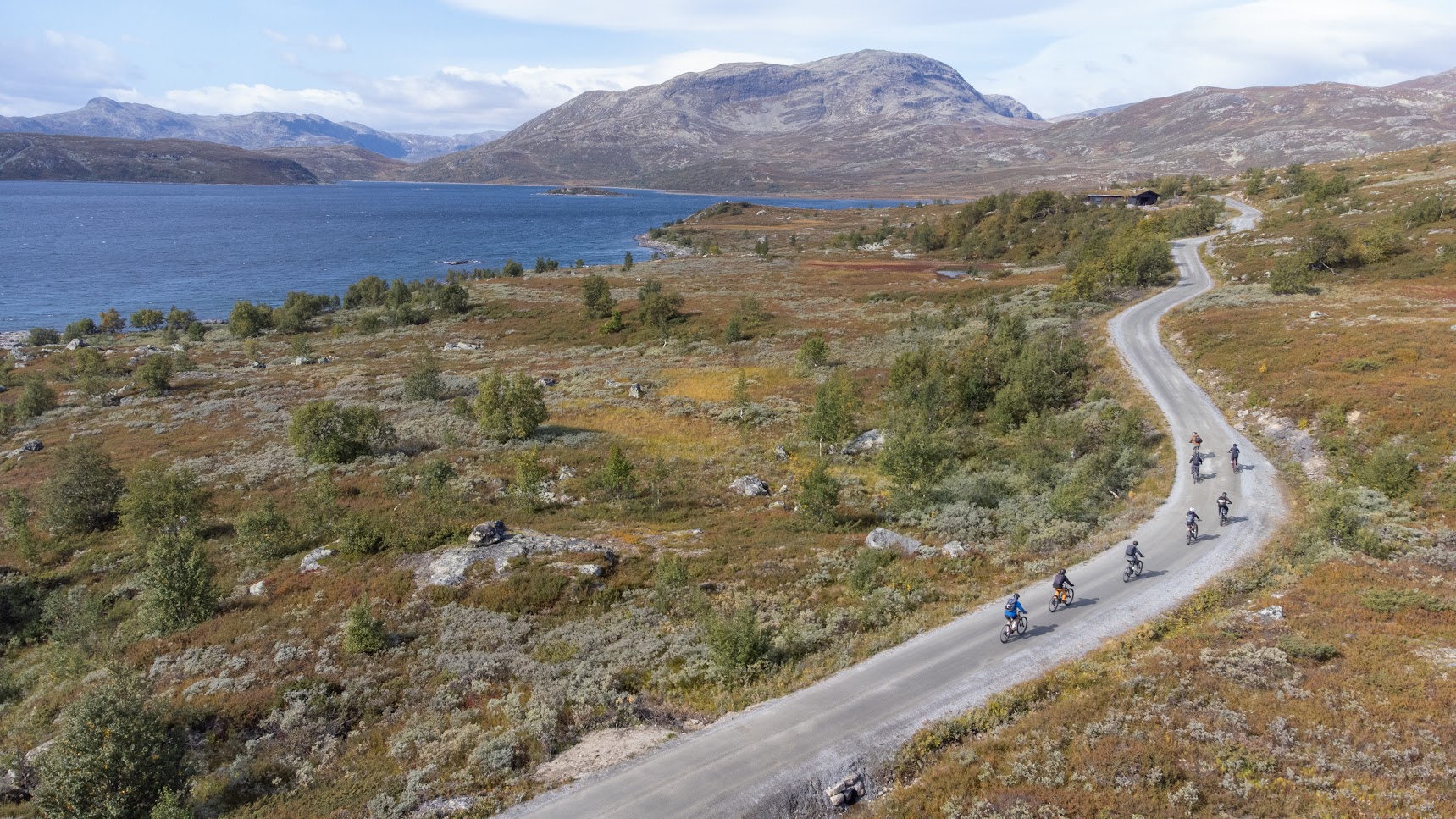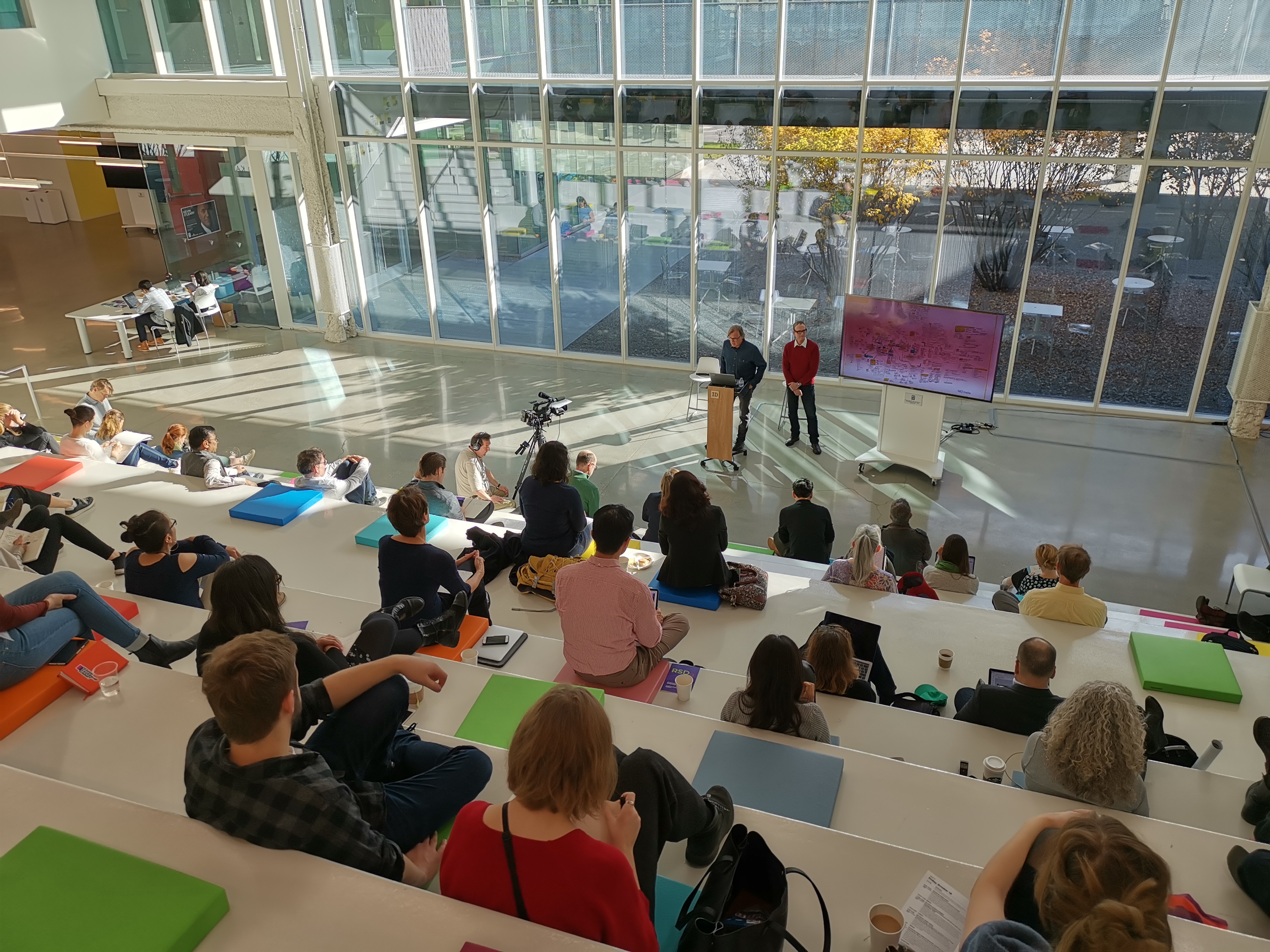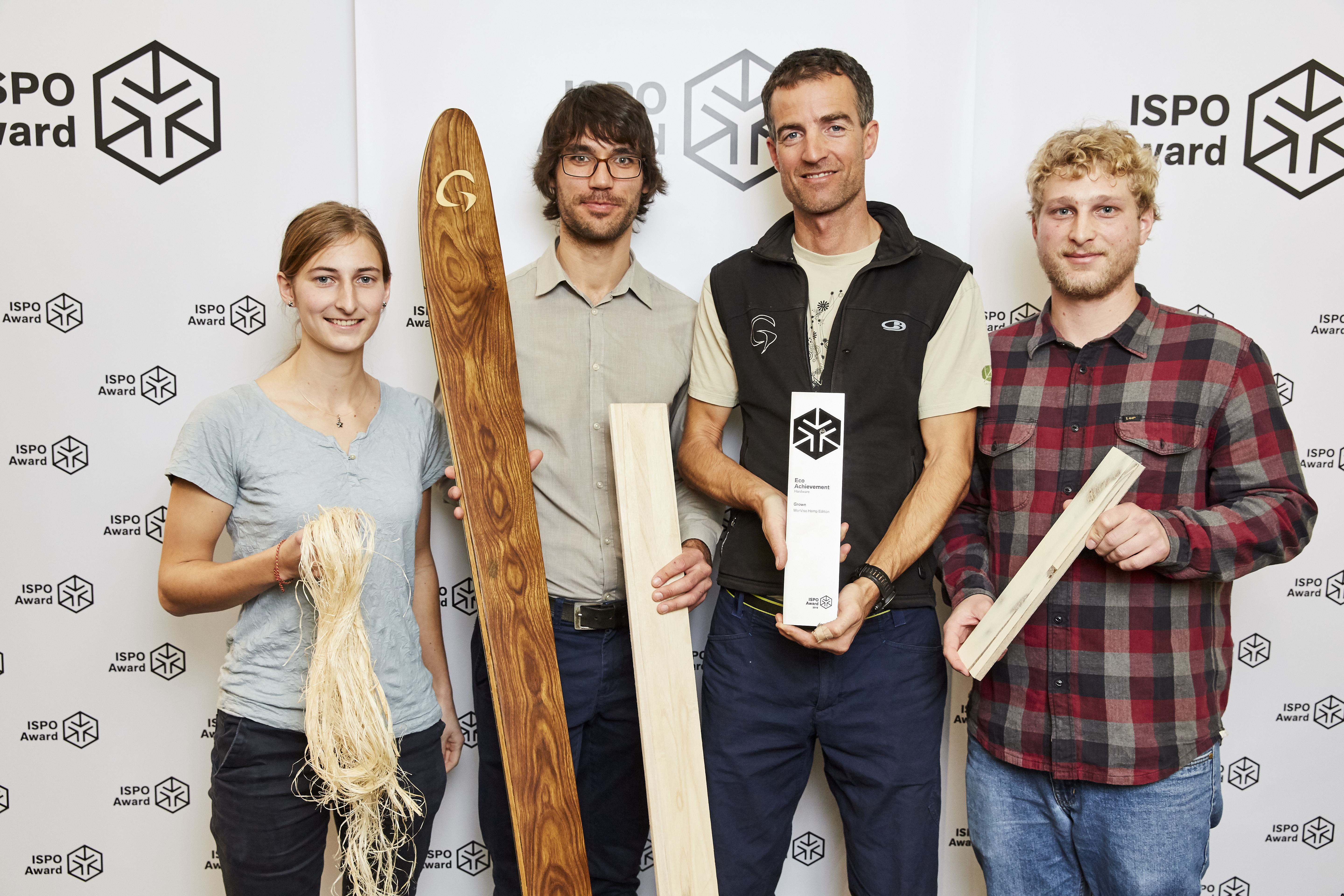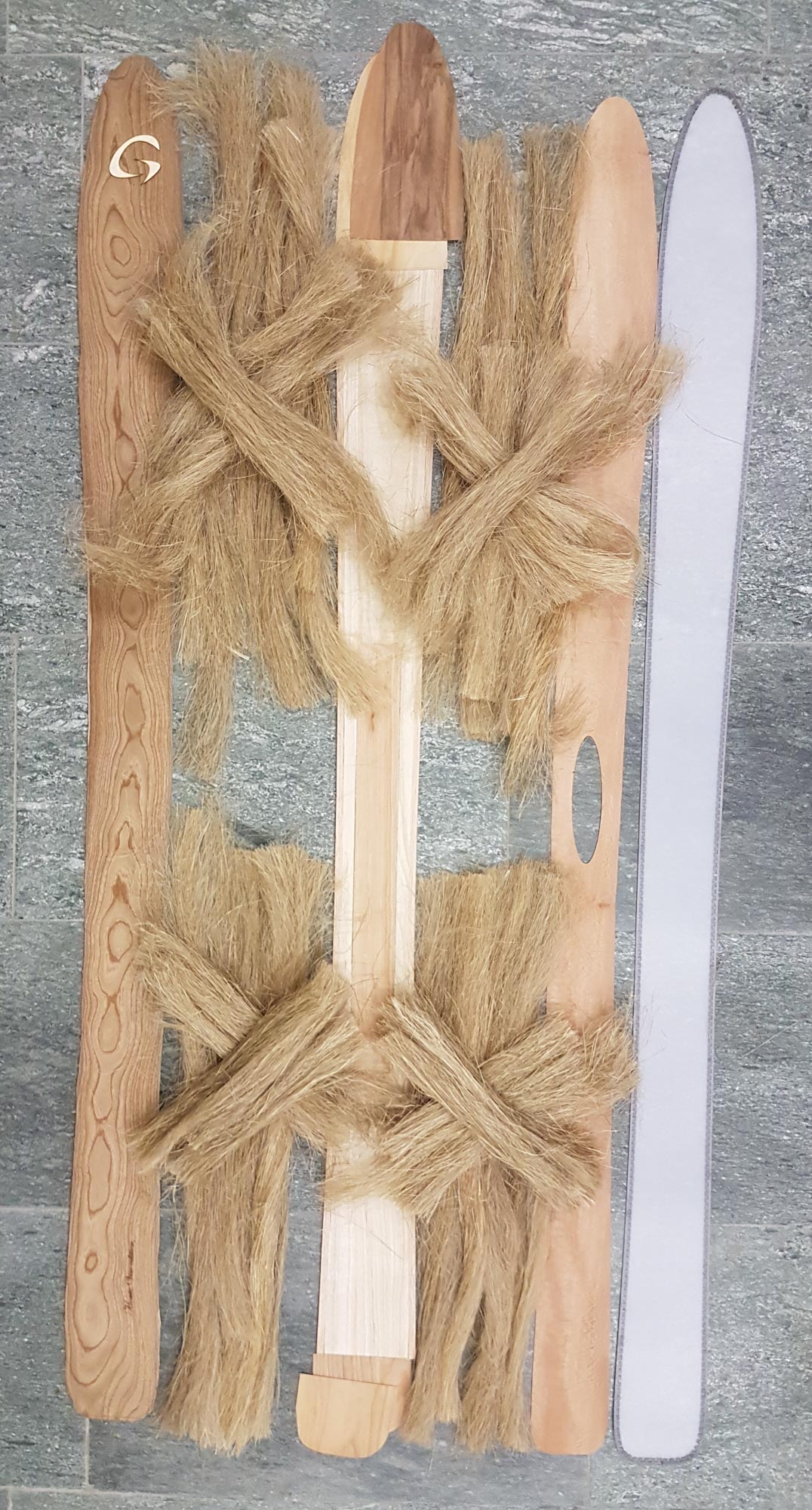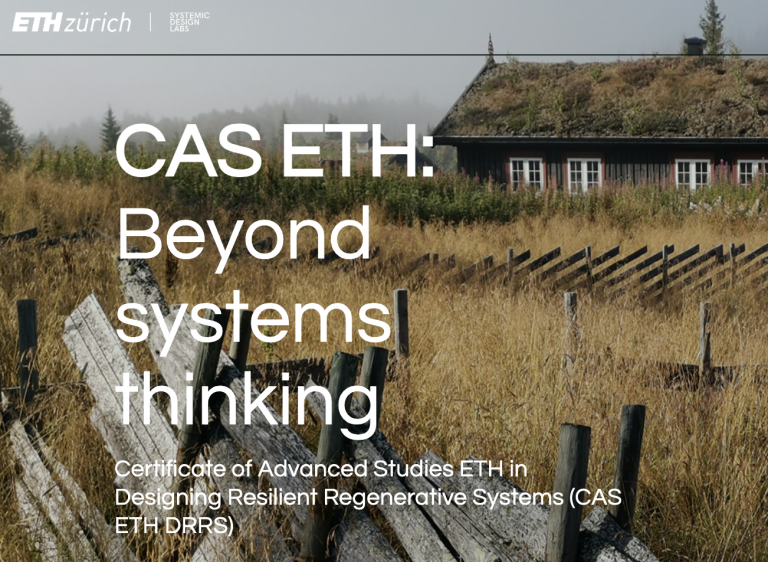Third Certificate of Advanced Studies in Regenerative Systems: Systemic Design
The third Certificate of Advanced Studies “CAS ETH in Regenerative Systems: Systemic Design” is launching: Application period is 1-31 August 2024
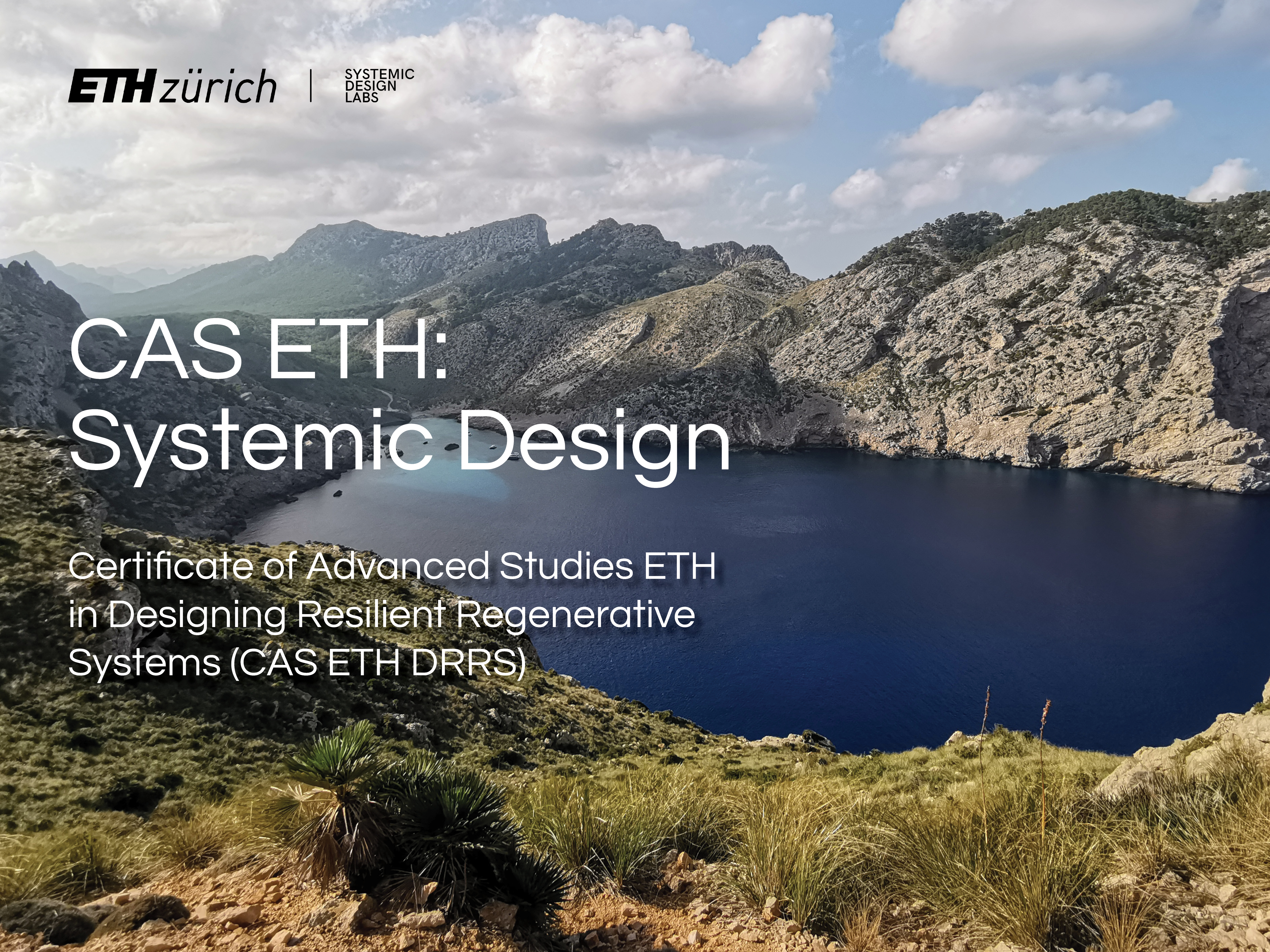
Systemic Design: Navigating scientific, engineering, design and embodied methods with inner practices
We understand the emerging field or “sphere” of Systemic Design not as a discipline but a post-discipline – a hybrid combination of science, design and systems thinking-sensing, a set of challenge-based navigation processes, techniques and cultures. We ask questions in Systemic Design to enact complexity through reflexive processes:
How do we enact uncertainty, immanent in complex systems? How do we navigate between science, engineering, design and inner practices for intervening toward desirable change? How do we curate inner practices for building holistic resilience of social-ecological systems? How does systems sensing relate with systemic innovation? How does Systemic Design spur regeneration? And how can all such help us to navigate, to guide, along identified challenges in the direction of desirable resilience and regeneration?
This CAS is the third out of a series of three CAS, leading to the MAS Master of Advanced Studies ETH in Regenerative Systems. The CAS’ build upon each other but can be taken in isolation and in different order. Each CAS’ theoretical and language base is the respective MOOC#1-3.
Practicing relational value of methods and the why-where-what-how
How do we navigate as designers, systems scientists, organic engineers, intervenors, weavers, nudgers, holistic planners, collaborative architects, curious practitioners – through emergent, largely un-plannable and emergent challenges – in a direction of desirable resilience, toward designing for regeneration within complex systems?
In Systemic Design we combine
- quantitative scientific methods such as social network analysis, life cycle assessment or land use mapping by geospatial data,
- qualitative scientific methods such as content analysis, surveys or focus groups,
- engineering methods such as computer aided design CAD or laser scanning and 3D models,
- design methods like prototyping, visual dialogue, sketching, or systems narratives,
- with embodied practices specific to enact the individual setting, such as the didactic Systemic Cycles, or forms of deep listening,
- accompanied by inner processes, such as experiencing types of flows beyond the mental and physical comfort zones, self-compassion, or silence.
We train both directly relevant scientific and engineering methods, design methods, and embodied practices in the context of navigating living systems and their applied relevance to real-world challenges.
A focus is on the relational value of methods – why do we engage, where, with what method, and how?
Self-reflexivity by the researcher(s) is key, through consciously curating a meta-perspective “view from above”/”meta-design”/”mental scaffolding”, with recursive processes of guiding the systemic design research: based on the main real-world challenge, repetitively asking questions by sensing the systems, remaining flexible to activate various types of hybrid methods and practices, from “hard” science to “soft” embodiment.
Field design trip to Mallorca, Spain
After a virtual course warm-up with a first live conversations with invited experts mid-October, and the initiation of each participants’ personal QUEST project as learning navigation spine, we embark on the physical core of this CAS – the in-person field design trip. The whole CAS cohort – maximum size 20 participants – meets for a one-week real-world immersion trip to the Mediterranean island of Mallorca, where we explore and embody hidden facets of bioregional regenerative weaving of the Balearic archipelago. We will meet with DRRS-lecturer Daniel Wahl to guide as through his lens of being a Balearic weaver for 15 years, and how he has been weaving toward regenerative futures. This period in autumn is ideal for a visit – the tourist season is over, the sea is warm, and the almonds, figs, and other fruits are ripe.
We will discover secluded farms, hike the Tramuntana mountains, swim and dive in a marine protected area with local biologists while the sea is warm, embark on a Systemic Cycles tour and live off the abundant wild food, and slow down on a 12 hours “solo” night time in the mountains.
Application period: 01.08.- 31.08.2024
Start: 14 October 2024 (virtual)
Duration: 5 months part-time, with virtual teachings (mainly virtual evening live conversations and methods practices) mid-October ’24 until end of February ’25, with a final CAS deliverable until the end of March ’25. A xmas/New Years vacation period is kept free from 9.12.24-6.1.25. This CAS’ flexible program schedule can be very well combined with a full job and family life.
Credit points: 12 ECTS. Field design trip: 26.10.–02.11.2024 to Mallorca
Find more detailed info on the course content, the course structure with its hybrid nature and nine modules, and the field design trip to Mallorca here.
Apply for this CAS ETH in Systemic Design – standalone or as part of the MAS in Regenerative Systems – at the ETH School of Continuing Education between 1-31 August 2024, here.

